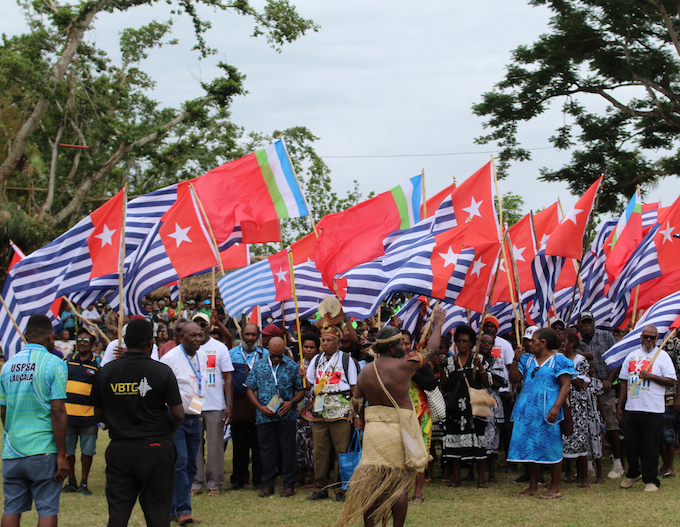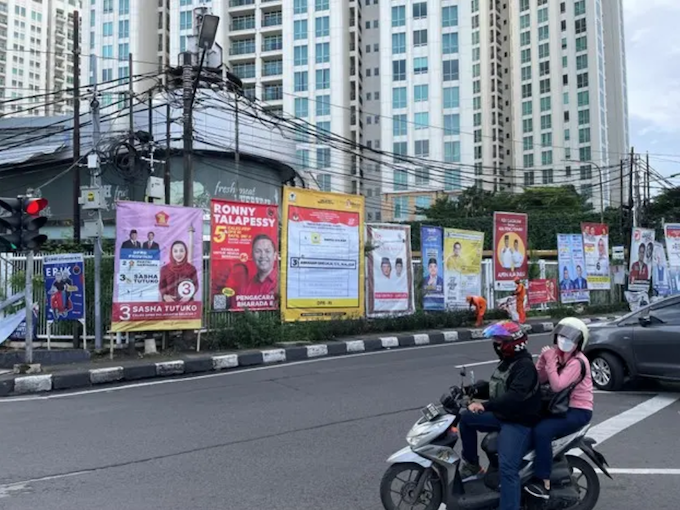
With Indonesia preparing for elections next week, Human Rights Watch has sought answers from the three groups vying for the presidency on how they would resolve human rights violations.
Two of the three Indonesian presidential and vice-presidential candidates responded to a questionnaire on key human rights issues.
The presidential candidates Anies Baswedan and Ganjar Pranowo submitted responses on their policy before the February 14 vote, but Prabowo Subianto Djojohadikusumo, did not.
- READ MORE: Mounting criticism of Jokowi by academics – claims Indonesia near ‘failed state’
- Indonesia: Candidates speak out on human rights
- Other Indonesian elections reports
In response to the question: “What is your policy on government restrictions on access to West Papua by foreign journalists and international human rights monitors?”
Baswedan’s stance is that the issue of justice is at the heart of the security problems in Papua.
According to his response, there are three problems to deal with the situation.
“Resolving all human rights violations in Papua by strengthening national human rights institutions to investigate and resolve human rights violations in Papua, as well as encouraging socio-economic recovery for victims of human rights violations in Papua.
“Preventing the recurrence of violence by ensuring justice through; 1) sustainable infrastructure development by respecting special autonomy and customary rights of indigenous communities, 2) realising food security through local food production with indigenous communities as the main actors, 3) reducing logistics costs, 4) the presence of community health centers and schools throughout the Papua region, and 5) empowering talents from Papua to be actively involved in Indonesia’s development in various sectors and institutions.
“Carrying out dialogue with all comprehensively in ways that mutually respect and appreciate all parties, especially Indigenous Papuans.”
For Pranowo, he said he would “focus on the issue of fiscal policy and asymmetric development for Papua’.
This would be done through “Reducing socio-economic disparities due to internal differences growth, development, and access to resources between regions through resource redistribution, infrastructure investment, tax incentives, or special financial support for Papua in order to achieve more equitable economic growth, reduce poverty, and improve the standard of living of citizens to those who need it most.
“We also committed a special approach to preventing corruption and degradation of natural resources in Papua, especially in newly expanded provinces,” he said.

A service for Indonesians
Human Rights Watch’s Elaine Pearson says the two teams that responded had done Indonesian voters a service by sharing their views on the critically important human rights issues affecting the country.
She said voters should be able to go beyond the rhetoric to compare actual positions, and hold the candidates to their word if they are elected.
The questionnaire contained 16 questions focused on women’s rights, children’s rights to education, the rights of lesbian, gay, bisexual, and transgender (LGBT) people, labour rights, media freedom, and freedom of expression.
Other questions included policies on disability rights, protection of Indonesian migrant workers, and Indonesia’s foreign policy in Southeast Asia and the Pacific.
There were also questions on policies that would address accountability for past violations including the mass killings in 1965, atrocities against ethnic Madurese on Kalimantan Island, sectarian violence in the Malukus Islands, the conflict in Aceh, the Lake Poso violence, the crackdown against student activists in 1998, and killings in East Timor.
All three teams have submitted their vision and mission statements ahead of the election, which are available with the General Election Commission.
This article is republished under a community partnership agreement with RNZ.













































